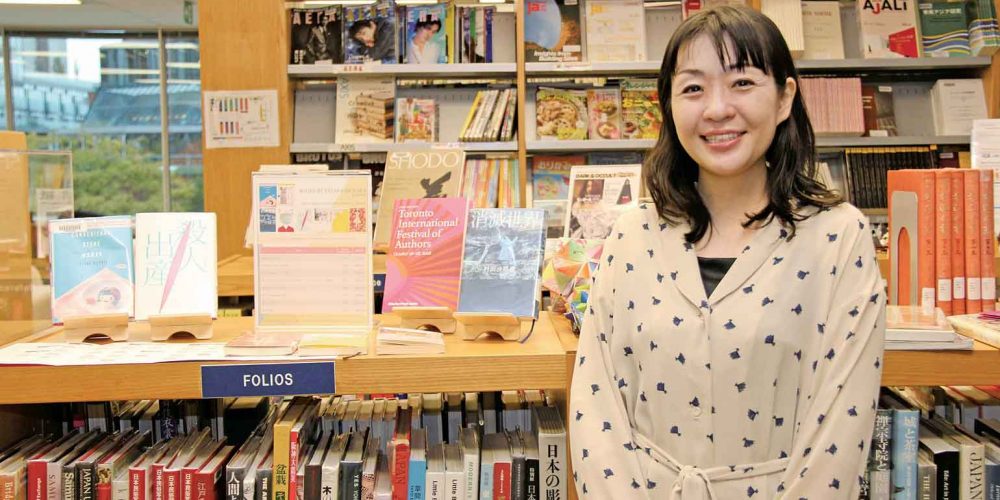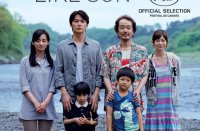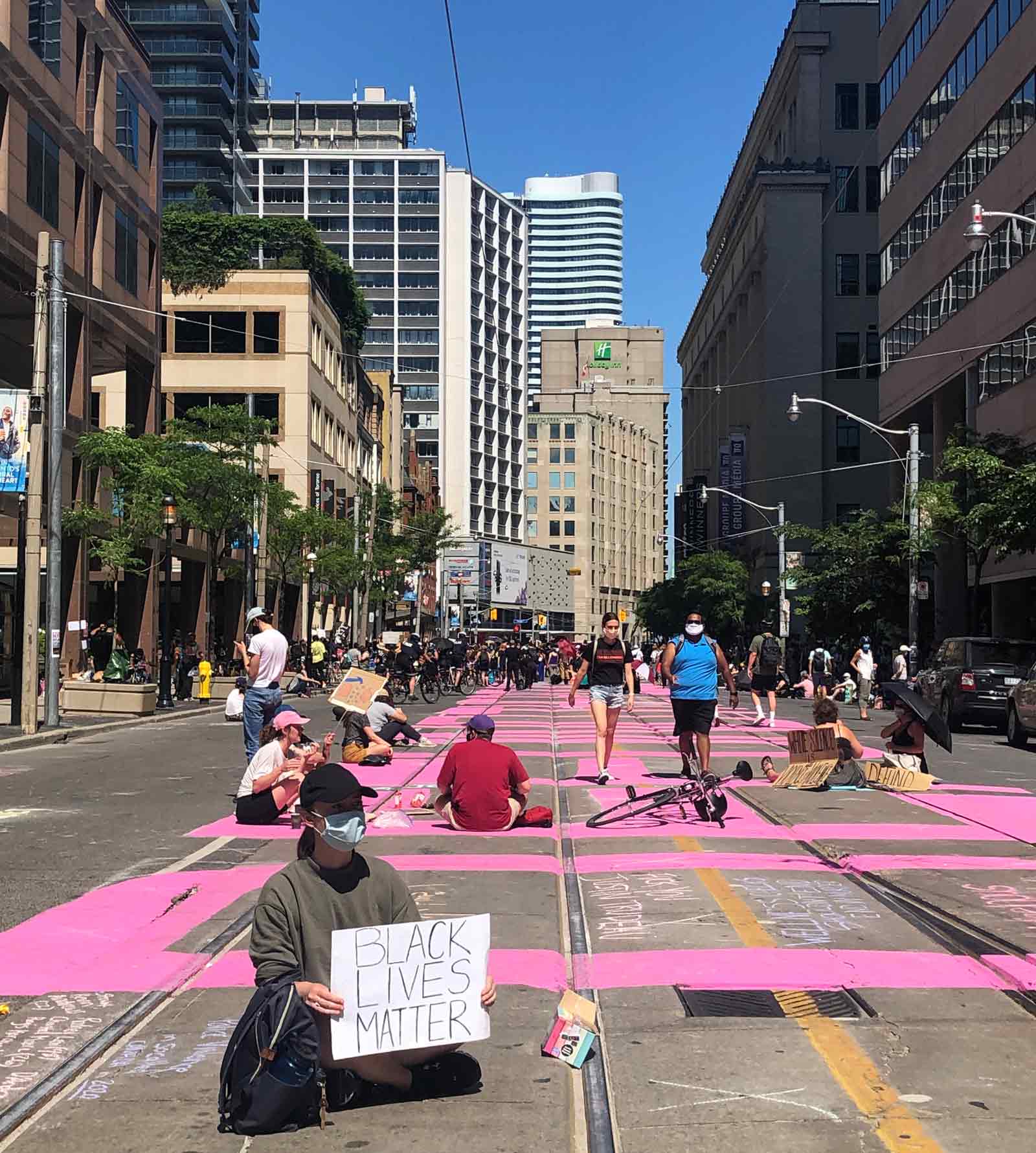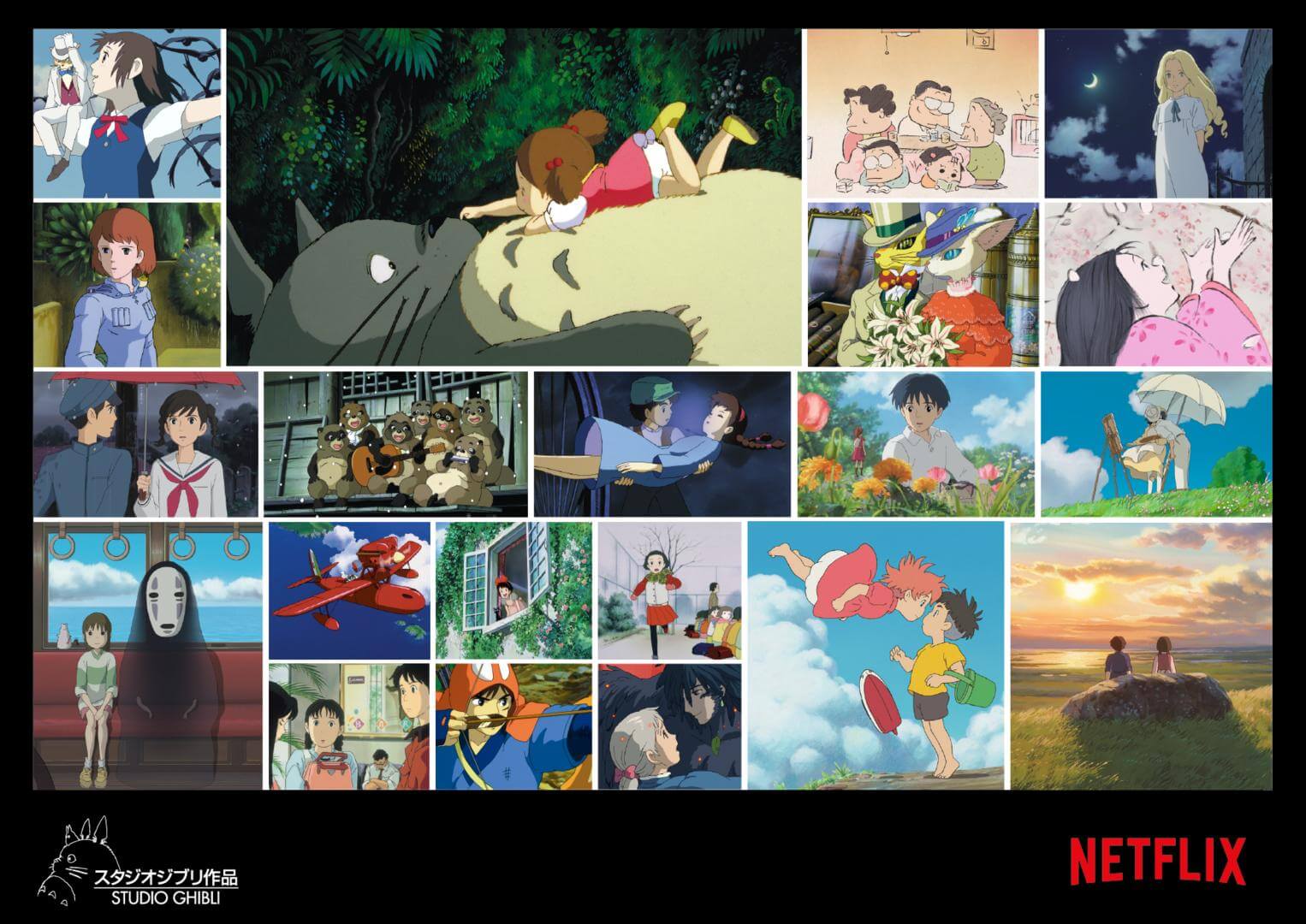You may have seen the hardcover book featuring a kawaii rice ball with a woman’s face at bookstores; but don’t be fooled by its cutesy, light blue and cherry-blossom pink jacket; Convenience Store Woman is a novel that is hilarious yet hopeless, heavily loaded with sharp criticism towards Japanese society. The novel centers on Keiko Furukura, a thirty-six-year-old Japanese woman who works at a convenience store (part-time. (Murata, the author, though successful, still works part time in a convenience store, which was the inspiration to write this book.)
“In the convenience store she finds a predictable world mandated by the store manual, which dictates how the workers should act and what they should say, and she copies her coworkers’ style of dress and speech patterns so that she can play the part of a normal person. However, eighteen years later, at age 36, she is still in the same job, has never had a boyfriend, and has only a handful of friends. She feels comfortable in her life, but is aware that she is not living up to society’s expectations and because of that, is causing her family to worry. When a similarly alienated but cynical and bitter young man comes to work in the store, he upsets Keiko’s contented stasis—but will it be for the better?”—Grove Atlantic.
We sat down with Sayaka Murata, the author of prestigious Akutagawa Prize winning Convenience Store Woman. To mark her first ever book to be translated and visited Toronto Literary Festival, Murata spoke about what it means for her novel to be read abroad, her inspiration to be found in convenience stores, and her thoughts towards Japanese society.
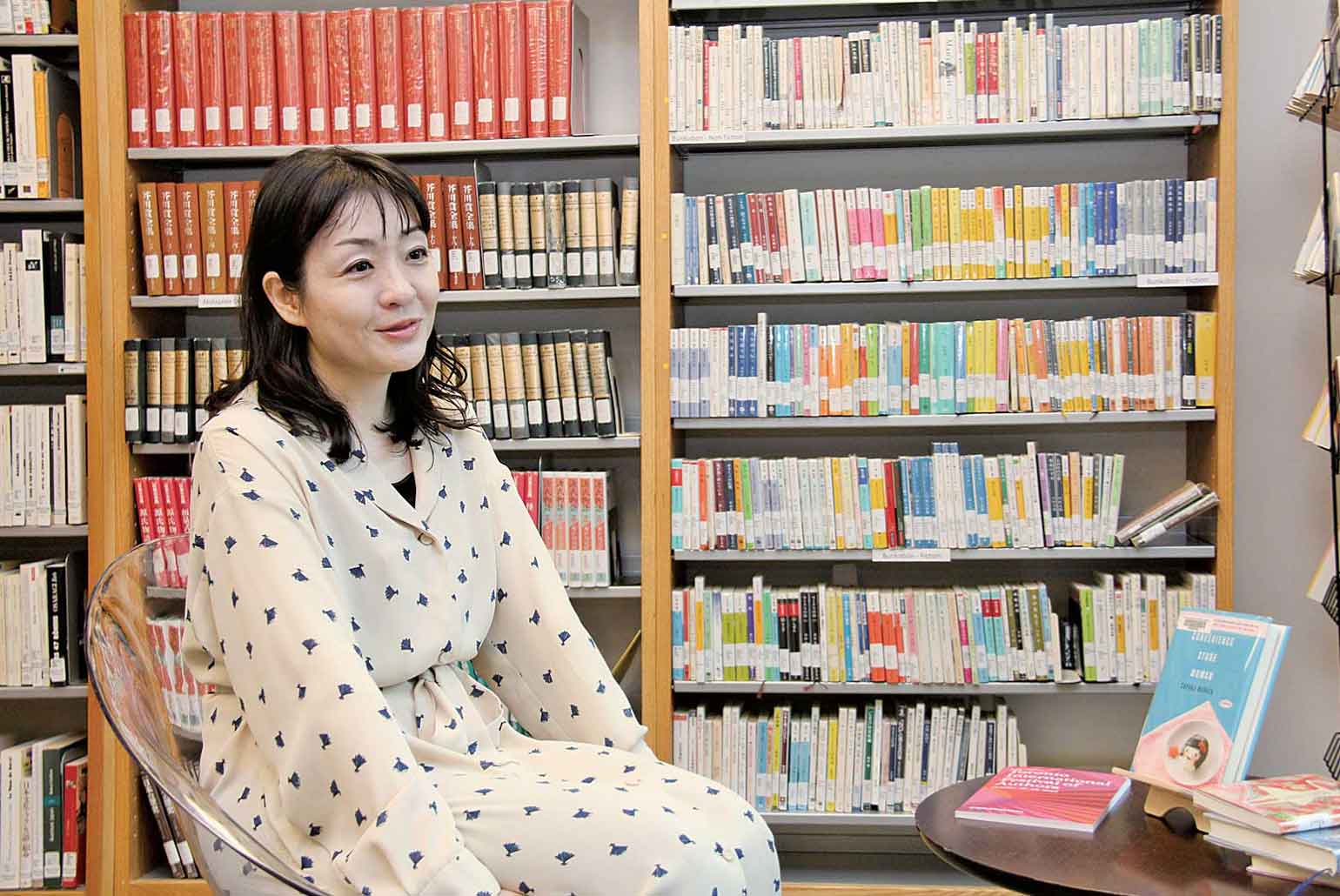
What was your impression of Toronto?
It’s an exciting city. I’m not too familiar with countries abroad, but it feels that this city is very safe and colorings of autumn leaves were very beautiful. I walked by the lake, and I saw many people reading on the benches that were placed alongside, and thought that was wonderful.
You will be attending Toronto International Literary Festival, and many readers from outside of Japan will be reading your English language debut, Convenience Store Woman. How do you feel about that?
I’m very happy, and also surprised that readers from abroad are reading my book. A friend of mine, Fuminori Nakaura’s book has been translated into English, participated at Toronto International Literary Festival and got to know authors from abroad. I was fascinated by the idea of hearing opinions from people abroad. But I always thought that “Convenience Store Woman” is stylistically minimal and very Japanese, and depiction of how ones work is also Japanese, so I was surprised for it to be read in English. It feels like a miracle and I am very happy.
What were the impressions people got at other literary festivals around the world?
Cheltenham Literary Festival held in early October was my first time ever attending an literary festival, and it was stimulating. I was on stage discussing on Japanese literature with translator, Ginny Tapley Takemori. There were many questions coming from people who are not familiar with Japanese literature, and I was happy because they were enthusiastic listeners.
In regard to readers reaction to a character, Shiraha—did you feel that what’s considered normal in Japanese society differs from it abroad?
I feel that it’s different. I truly think that Japan is very behind. In Japan, people are finally coming to terms, that “we can get mad at this issue”, or “its okay to be hurt.” I visited England and heard that there is an overall understanding towards LGBTQ+ community, but people who don’t have partners are severely criticized. In Japan, I don’t think we are even at that phase. When prominent figures speak of their sexuality or their same sex partner, it becomes a news as they are “coming out”, which I have a sense of congruity towards. There are many issues like the recent news of Tokyo medical school changing results to exclude women.
I think the fact that these problems are coming into light and people are vocal about their anger towards issues is an improvement, thinking that these issues have been hidden and not spoken. However, the situation we have is terrible.
What incident made you doubt the norms in Japan, such as what is ‘normal’?
Since my debut book, I have always been writing about women who are considered abnormal. Girls who have issues with their parents, or girls who struggle to live ‘normally’. But I’m not sure how it came to be. Sense of congruity is a grand theme for me, ever since I was small. I had that sense towards not only bad things, but things that are considered good. For example, I always questioned being unconditionally loved by my parents. I was a child who enjoyed questioning things, even if they are something that is good to me.
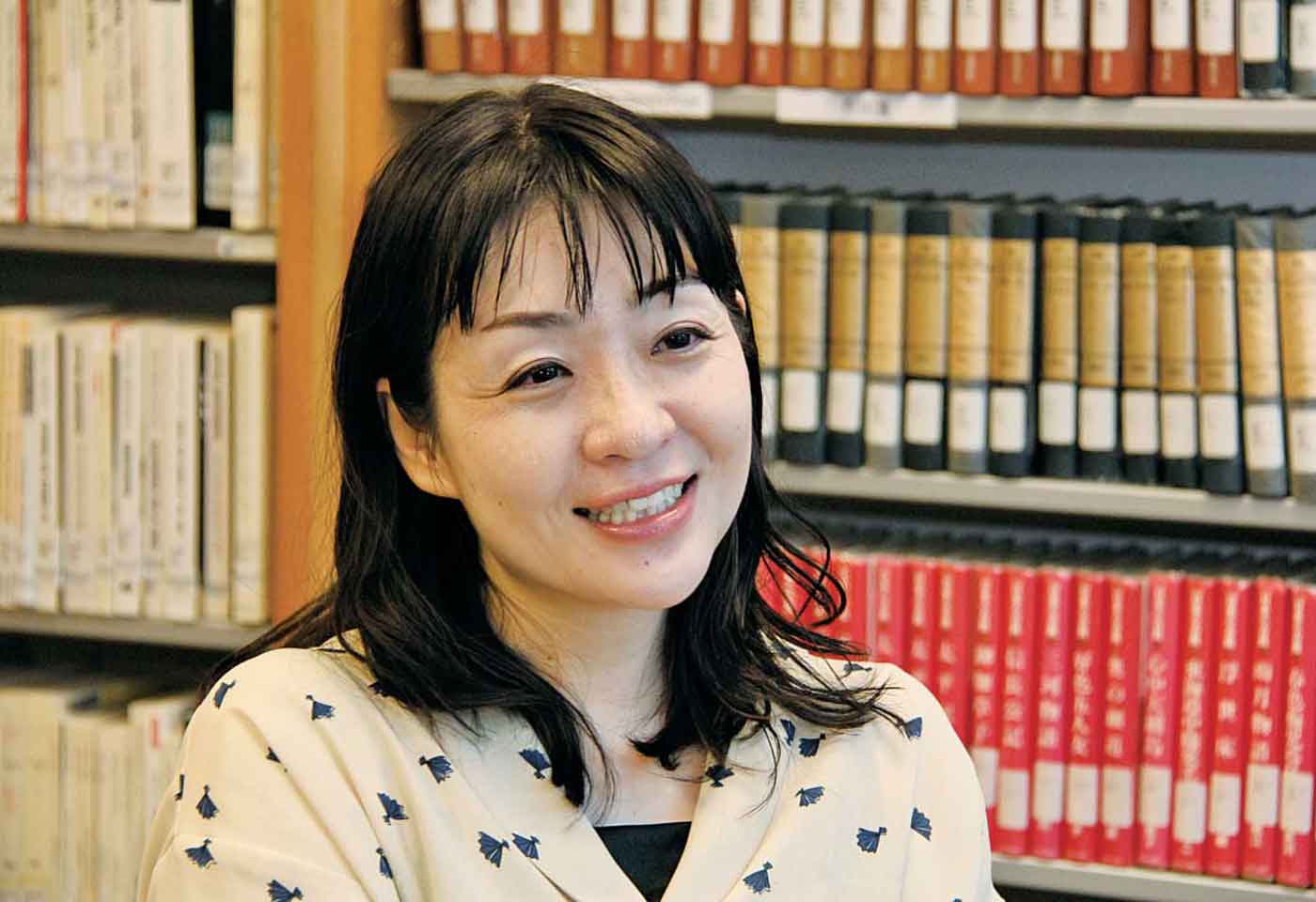
Did you write about this sense of congruity since you were small? And did your thoughts towards that change as you continued to write?
I have been writing novels since I was in elementary school, but I came to address this sense in my stories after I became a university student. I had used composition of ‘protagonist being hurt by the world that is absolute’ many times in my earlier works, but now I depict the world that is cornering protagonists in a dead-end as fluid and vague. One of my novels, ‘Satsujin Shussan’ depicts a world that has laws that are unlike the ones we have in real world, where I question what it means to have common sense.
The world with laws that are unlike the ones we have—where do you get the inspirations from?
From very simple questions. For example, a story that has been translated into English and published on a magazine, “Suteki na Sozai” has scenes about knitting sweaters with hair of dead people. That came from a simple question I had. I don’t think it’s too odd if one thinks “using humans as material” is better than simply wasting them. However, not many do, and the idea of sweaters using human hair is grotesque. There are also chandeliers made of human nails, and obviously, I find that gross. But I like to think of the reason behind why we find it grotesque.
Does your depiction of relationship between male and female, and gender roles come from your simple questions as well?
I believe so. Gender roles have tortured me since I was very small. It was odd and twisted that I was forced to play the role of a “female”, and being taught “you are a girl, so you must learn how to cook and do house chores.” Especially when I am abroad, I think of how odd the environment was.
Do you have similarities with protagonist, or is the character entirely different from you?
We have a similarity that we both work at convenience store and are in thirties, but I think our personalities are very different. I have always been conscious of how others perceive me as, and quiet since I was a child. I was trying my best to be a “an energetic child”, or “present my writing well in class”, thinking of how I would be seen by others. I never had an opinion of mine, and I lived my life thinking if there “if there is a harmony in the environment, it’s okay.” In that sense, I accommodated myself to societal pressure in Japan.
On the other hand, the protagonist says whatever that comes to her mind. I wish I could be like her as well. She questions how things come to be, and even when thrown terrible words at, she accepts them without being hurt. I have tried to adjust to the person I was in relationship with when I was an undergraduate student, but that’s something she would never do. In that sense, I admire the way she navigates her life.
Is there a character in ‘Convenience Store Woman’ that reflects your personality most?
I don’t think so. There are some scenes where I can understand how Keiko and Shiraha-san feels, and I can also understand how Keiko’s friends think, too. Keiko’s friends say things like “Isn’t part-time position unstable?” and “Why not become a full-time employee?”, and I feel that I might say something alike if I meet someone like Keiko.
What this novel differs from other works of mine, is that it is written from two points of views. It was the first time that I wrote a story with two cameras. I consider myself an ordinary person, and I was writing thinking that there is a sort of grotesqueness in me as well that ordinary people poses.
Has the shift in multiple perspectives in your narrative reflected in your new novel, Chikyuu Seijin?
I believe so. The protagonist, Natsuki is a lot closer to me than Keiko is. She is an escapist who fantasizes that she is a witch and gets hurt, so she is much more human in comparison to Keiko. In that sense, I would like Natsuki to meet Keiko—Natsuki would feel more at ease if she meets Keiko, and maybe they can become friends. There is a lot for Natsuki to learn from Keiko.
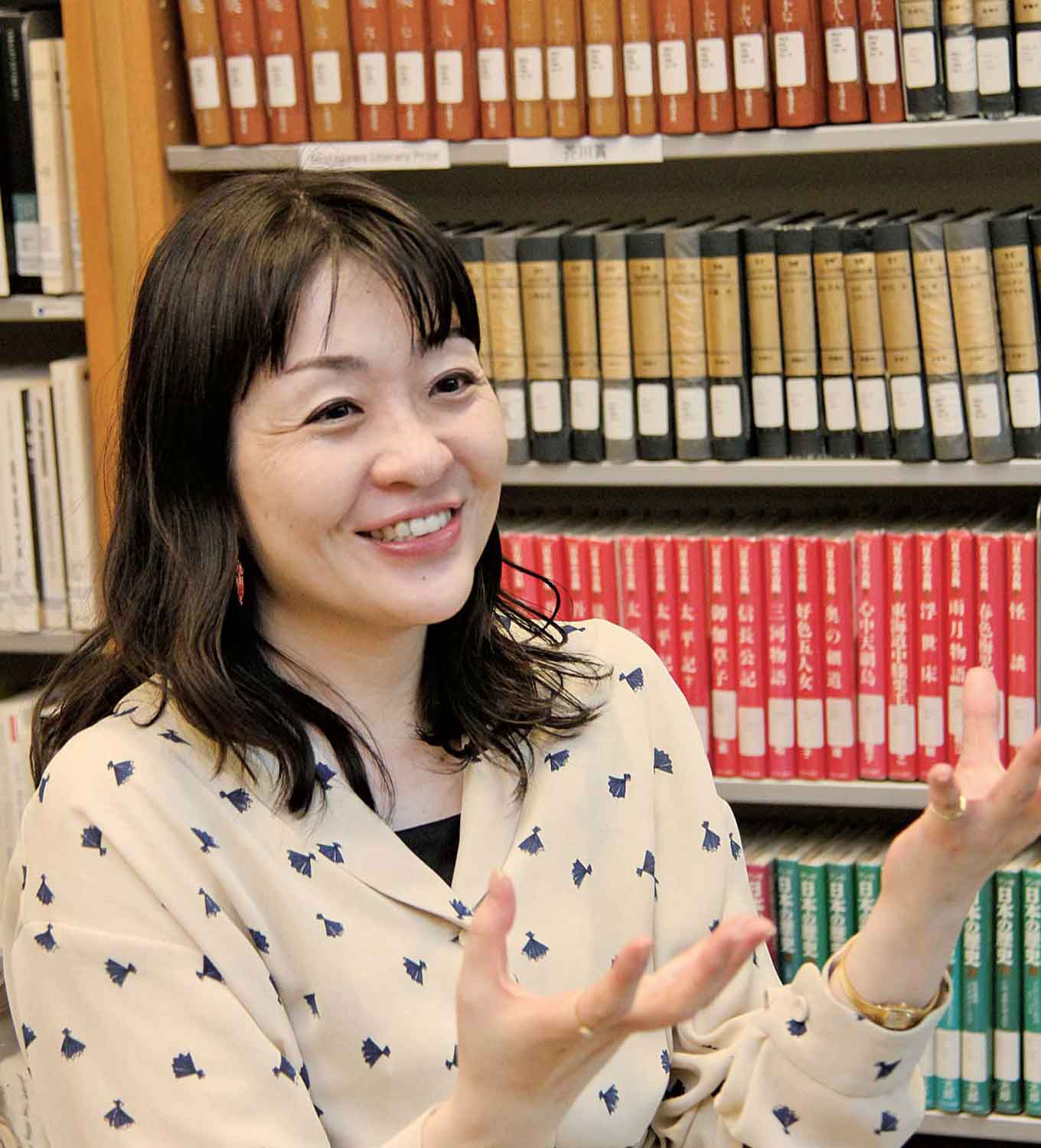
Most of your works question social norms What drives you to write with such theme, and where are you heading?
I was a shy, quiet child and worried many. I was a cry-baby and was too naïve, in a way different from Keiko. I developed a complex towards ‘normal girls’. I was very shy at the time so I could not talk with boys at all, and I used to think my friends who were not shy towards boys and talk to them are the ‘normal girls’. But as I kept on writing stories, I started to question what were these norms that haunted me so much when I was a child. Through writing, what I was obedient to became visible.
I think that there are many people in Japan who don’t question the societal norms, and gender roles. Is there something in Japanese society that you wish will change?
I truly want the society to change. In Japan, movements like #MeToo is called out to be “fake feminism” and gets bashed on with misogynistic words, and the fundamental message is not being spread. It’s so odd that the word “chikan” (perverts who molest people on public transportation) is spread around the world, and there are so many issues that I feel a strong indignation towards.
Off course, there are men in the world who are harassed like Shiroha-san. There are environments where those who are part of the LGBTQ+ community refer to their partners and talk casually about them, and it is common—that is something Japan needs to change. Hearing people’s opinion on “Convenience Store Woman” abroad makes me think believe that even more.
Were there moments that you tried to express angers that you personally experienced, through your work?
I think my work belongs more to the protagonist than to me. I don’t want my work to speak of my own opinions too much; they are the opinions of the protagonist. The author I learnt storytelling from, Akio Miyahara holds a belief as such, so I might have been influenced by that. What’s important is for the story to move itself, so I have always try not to express my own angers through my work. Even if I am holding an anger, as a writer I must be critical of that emotion, so I cannot through it at my work. I think you always have to be cool-headed with this kind of emotions.
Could we get a message from you towards the young Japanese readers who are in Canada?
I have no experience of studying abroad, and recently I wish that I had that experience when I was young. I could never imagine myself living abroad, but now that my work has been translated and there are more opportunities for me to meet people abroad, my perspective has broadened.
It took a while, but now I am critical and aware of the environment in Japan. To all of Japanese readers in Canada, I am sure all of you who are living abroad are gaining wonderful experiences. It is truly valuable to gain the perspective which you did not have when you were in Japan, and I have admiration and respect towards those who are accomplishing that.
I think many people have their “fantasy selves”, but my “fantasy self” is the me who have studied abroad, and has progressive perspectives. It is I who is capable of tackling these social issues more, and being aware of anger I hold, and sometimes I wonder what kind of work I would have written if I was like that. People who are living abroad, is living the dream of mine, so I hope all my fellow Japanese who are living abroad value your experiences.
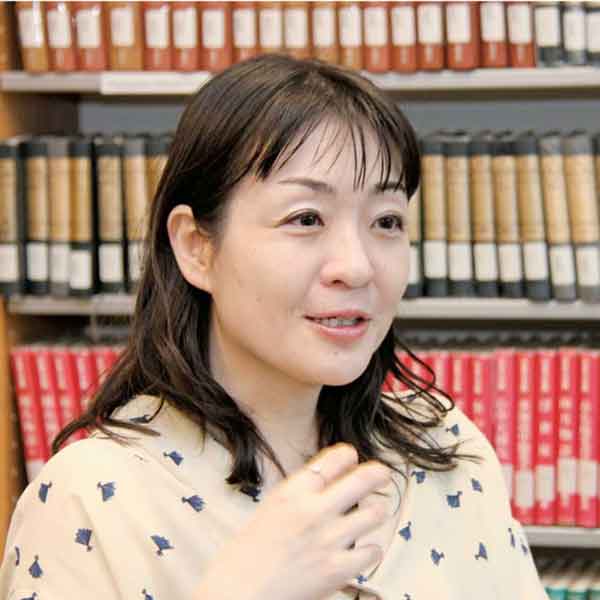
Sayaka Murata Biography
Sayaka Murata was born and raised in Chiba, Japan (just east of Tokyo), and then attended Tamagawa University on the western edge of Tokyo. She is known for exploring nonconformity in society for men and women, particularly with regard to gender roles, parenthood, and sex. Throughout her writing career, Murata has worked as a part-time convenience store clerk in Tokyo and draws much of her inspiration from her observations of everyday life in there. Murata received the Gunzo Prize for New Writers for her first novel, Jyunyū (Breastfeeding) in 2003, the Mishima Yukio Prize for Shiro-iro no machi no, sono hone no taion no (Of Bones, Of Body Heat, of Whitening City) in 2013, the Noma Literary New Face Prize for Gin-iro no Uta (Silver Song) in 2009, and the prestigious Akutagawa Prize in 2016 for Konbini ningen (Convenience Store Woman) which became her first book to be translated into English in 2018.
(Japanese Article: トロント国際作家祭(TIFA)小説『コンビニ人間』芥川賞作家 村田沙耶香さん インタビュー|トロントを訪れた著名人)


